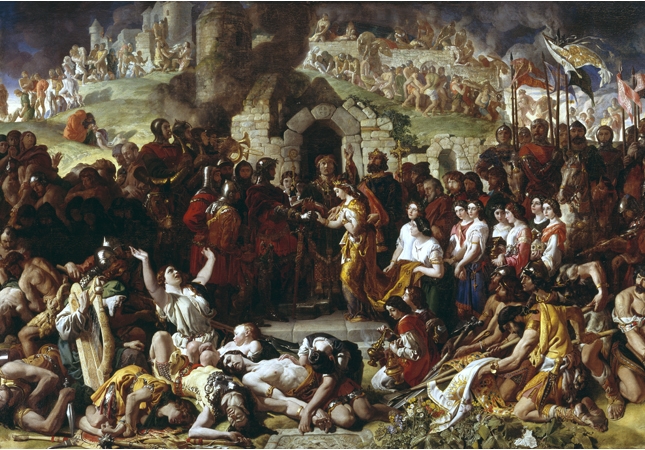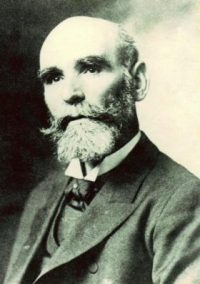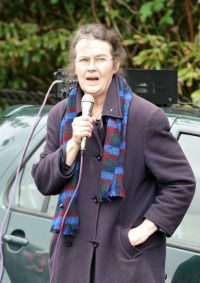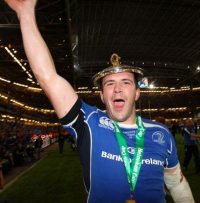The Norman arrival in Ireland in 1169 was just one end-point of their extraordinary expansion out of Flanders and northern France between the eleventh and the fourteenth centuries.
Superior military technology, deployed with ruthless brutality, allowed them to conquer and settle a vast swathe of the medieval world, from Byzantium in the east through parts of Britain, Germany, Italy and Spain, as far west as the Canary Islands.

When they got to Ireland, they were not yet using true hereditary surnames. The eldest-son-takes-all practice of feudal primogeniture meant younger sons had to go off and fend for themselves, one of the factors that drove their expansion. Perhaps that fracturing of Norman elite families weakened the need for hereditary names to signal wider family and tribal connections.
But the Gaelic Ireland they overran was in the middle of an explosion of hereditary surname-creation, with great networks of extended family names budding and sub-budding off central stems as families grew or waned in importance. The grandchildren of Brian Ború, High King of Ireland and victor at the Battle of Clontarf, understandably wanted to flag up their connection, and adopted Ó Briain. But the sons of one of those grandchildren, Mathghamha Ua Briain, picked their own father as an origin point and became (in modern Irish) Mac Mathúna, McMahon, son of Mahon. Four generations later, Constantine (Consaidín) O’Brien, bishop of Killaloe, was the source of the Mac Consaidín line, the Considines. A great multi-generational flowering of names was taking place.
As they did wherever they settled, the Normans eventually integrated. They out-Irished the Irish when it came to fissiparous surname adoption. Just a single family, the de Burgos of Connacht, spun off dozens of familiar modern names: Davey, Davitt, Doak, Galwey, Gibbons, McNicholas (Mc)Philbin, Gillick, Jennings, McRedmond. All stemmed from the forenames of prominent de Burgos, and all followed precisely the Gaelic Irish O and Mac tradition.



The upshot is that almost all so-called Norman surnames were created and adopted only in Ireland. “Hiberno-Norman” is little grudging. They are Irish surnames.
The best popular account of Norman surnames in Ireland that I know of is by my colleague in Accredited Genealogists Ireland, Dr Paul McCotter MAGI, available online at the Web Archive.
John: do you have any ideas about the dal g cais who took Norman names. I follow the L226 group on FTDNA. Casey is doing a wonderful job of showing subtrees and surnames. On the DC63 page where my Curtis brother sits with no close mutational relatives, there are Cusacks on another nearby sub-branch. Also none of the well-known Gaelic clan names are represented on these nearby branches except for one O’Brien who lost his way. Any ideas? Were we turncoats? Or did we have a such a skill that allowed employment from the Normans and a gifting of their family name? I understand about NPEs and fostering. But why would the Gael have been so involved with the family? Would appreciate any ideas you and your readers have.
John,
Thank you for this interesting discussion as well as the link to Dr.McCotter’s very informative site, utterly fascinating, addressing many of the issues discussed at the Burke family holiday table.
Upon being introduced to a friend’s new Irish American neighbor, my late brother Michael Burke was met with a disappointed, “Oh, a Norman”. After 800 years, he found it amusing.
Thanks again for your wonderful blog.
Moira Burke
My husband’s maternal ancestors were Weirs from Antrim. We tried to find the origin of the name and were told it was Norman. Does that seem true?
John, How does one distinguish Anglo-Norman surnames from Huguenot surnames in Ireland after 400+ years? Thank you.
If i could find out if my grandad father from Kildare in 1869 who had the name Fox which i have now inherited it from the Normans . I have been told it,s origin is English is this true.Please enlighten me.
This website seems to suggest that there is an Irish origin for the surname Fox.
http://www.libraryireland.com/AnglicisedSurnames/Fox.php
Many thanks for such an interesting article & the link to that excellent article on the Norman surnames. The more I read of the convoluted & multi-layered history of the Ireland, the better I can understand my Irish roots with names like O’Hanlon, Pelissier & DNA hints of Eustace & Graydon plus the Norman overlords with their Welsh serfs. I hope when DeLacy finished building Irish castles and built Llanthony Abbey, he spent sometime on his knees contemplating the murder and mayhem he caused.
Some Foxes were well known plantsmen & established beautiful gardens in Cornwall.
“When they got to Ireland, they were not yet using true hereditary surnames.”
No. The Normans had begun using surnames by the late 1040s while still in Normandy (I think de Montgomery was among the very first), and by the time they came to Ireland had fixed surnames which their descendants still use today. Several of them derive from English or Welsh placenames – de Burgh, de Bermingham, de Staunton, de Angle, de Sarsfield, de Weston. Anyone surnamed Burke, Birmingham, Stanton, Nangle, Sarsfield, Weston, can easily see the correspondence between the modern form and those assumed in England and Wales prior to 1169.
Very few Anglo-Norman lineages created surnames from Irish placenames, or during their circumstances within Anglo Ireland. I can think of only two or three off the top of my head, all quite minor lineages.
“The upshot is that almost all so-called Norman surnames were created and adopted only in Ireland.”
Not at all. By the time the Anglo-Normans settled in Ireland, they already had surnames. What happened was many were given Gaelic forms of identification, some of which became surnames, some of which stuck. They all start with Mac, because surnames were no longer created with Ó by the late 1100s. Thus some branches of the Burkes were known as Clann Uilliam a Búrc, Clann Réamuinn a Búrc, Clann Sheoinin a Búrc, Clann Dabhac a Búrc, Clann Meilr a Búrc, Clann Hubert a Búrc, Clann Philbin a Búrc, Clann Giboun a Búrc, Clann Tibbott, to name just a few from Connacht.
But clearly, these were just dynastic terms. The original surname de Burgh was retained. Some did go on to become full surnames – Mac Sheoinin (anglicised Jennings), Mac Dabhac (ang. Davock(e), not Davitt), Mac Philpin (ang. Philbin, Phillips), Mac Giboun (ang. Gibbons),but the likes of Uilliam, Réamuinn, Meilr, Hubert, Tibbott, either dropped their dynastic designations while retaining a Búrc (ang. Burke, Bourke), or became McWilliam(s), et al, in relatively few numbers.
Yet these are not ‘Norman’ surnames – they are Gaelic-Irish surnames for Gaelicised Anglo-Norman lineages in Ireland; or as you put it, “Irish surnames.”
As for Gaelic-Irish surnames, that’s a whole other article! Suffice to say the first people to bear them were born in the early 900s and are recorded as mature men during the 950s-70s. Ireland’s surname explosion was therefore two hundred years in progress by the time the Anglo-Normans came here. I am finishing a short book which deals with the issues. Thanks for the link to Paul’s website!
Just a note to mention Adrian Martyn’s amazing book, the 14 Tribes of Galway. He goes into great detail about the origins of names. For some of us, that is a fascinaitng subject.
John’s blog attracts the best!
That’s very kind of you, Tom, so thank you! I do hope John does not take the above or any other such comments by me in any way other than the spirit they were offered – friendly correction to someone I hold in very high regard.
Thanks Adrian. I always appreciate correction – expect your comments to appear (attributed, I promise) in the next talk I give about Irish surname origins.
Oh wow, thanks! I better start adding sources to these comments from now on! Might email some drafts your way soon as I too very much welcome correction.
Adrian and John: i’d never understood the concept of Gaelic-Irish surnames till this article. Are you saying that there are other names, perhaps more Gaelic invention than direct Norman lineages. If so, could that explain why our own surname’s origin is consistently described: “appeared Ireland in Norman times” yet is not included in any of the brief or deep lists of Norman names (like your great references, above).
Judith, I will post you on this soonish!
Hi John,
I love reading your stuff, its so interesting & informative.
Can you give me any insight on the surname Campion? I believe it is also of Norman descent. My family are Campions and are all very dark featured/strong featured – nose, chin. My father always said we were Normans originally but I wonder if the Normans were originally Vikings why all of the Campions in my family are all so dark? I’d love to trace back-back. But finding it difficult! Any info would be hugely appreciated.
Thanks !
And then there are Anglo-Norman names that came with the Plantation. My maternal grandfather was a Pearson born near Donegal Town in 1901 into a Presbyterian family that probably came over with other Presbyterians from the south of Scotland. Pearson would seem to be a derivation of Pierre-sen —- a French name with a Norse patronymic ending, i.e. Norman.
Great article and comments! I am perplexed as an (American) researching my numerous family lines, most of which settled in the American South and were either confirmed Scots-Irish or Huguenot. One ancestor has me mighty perplexed: Dulin. Although “Doolin” is clearly a place in Clare, our Robert Dulin ancestor arrived in (very Anglican) Virginia in the 1650s, and settled right down the road from an established Huguenot colony (Manakin), which would leave me to believe he was most certainly not Catholic (bypassing the only Catholic colony of Maryland). While some records indicate he may have spelled his name Duling, Doolin(g), as was common for many families to do with surnames at that time, it was most typically Dulin, which is a French name from what I can gather, most commonly found, to this day, in France. And he and his family married Powell and Ball (of Washington’s family, which I believe were Huguenot). Robert Dulin is also listed as a qualifying ancestor for the Virginia Huguenot Society, but I cannot seem to find any proof he was actually Huguenot. The family tradition, faulted as any may be, was that our Dulins were Irish, and this belief is held by many Dulins from the deep South to one I Have communicated with in New York (and Irish Catholic Dulin).
Further complicating it, or perhaps clarifying it, a lineal male descendant carrying the name Dulin (of which I am not) was DNA tested and comes back as matching Niall Nóigiallach – Niall of the Nine Hostages (Y-DNA R1b1b2a1a2f*). So it would seem, Robert Dulin really was “Irish” (or at least of the original inhabitants), unless of course, he was French, and his DNA preceded (was the original home of) the DNA Celtic Niall of the Nine Hostages would carry, since that Y–DNA is also found in France and Spain.
So I am stuck with the original question–was Dulin simply an Anglicization of Doolin? A Catholic emigrating to VA in 1650, and settling in a Huguenot area of Virginia, with marrying Huguenots and Protestants? Was Dulin English, or from Dollin or Dulon (French?), or Dowling?
What information is there on the French name Dompierre. I’ve been told the Dom part can be “son of” or that it can mean royalty of some kind.
I would appreciate any information.
If it ever existed it Ireland it would have been very rare.
I did a google and a wikipedia; seems like it is a common placename, 22 villages and towns in France alone with some in Switzerland. I see Domnus Petrus as one Latin version which could mean Lord Peter or Peter’s Domain. I could be all wrong.